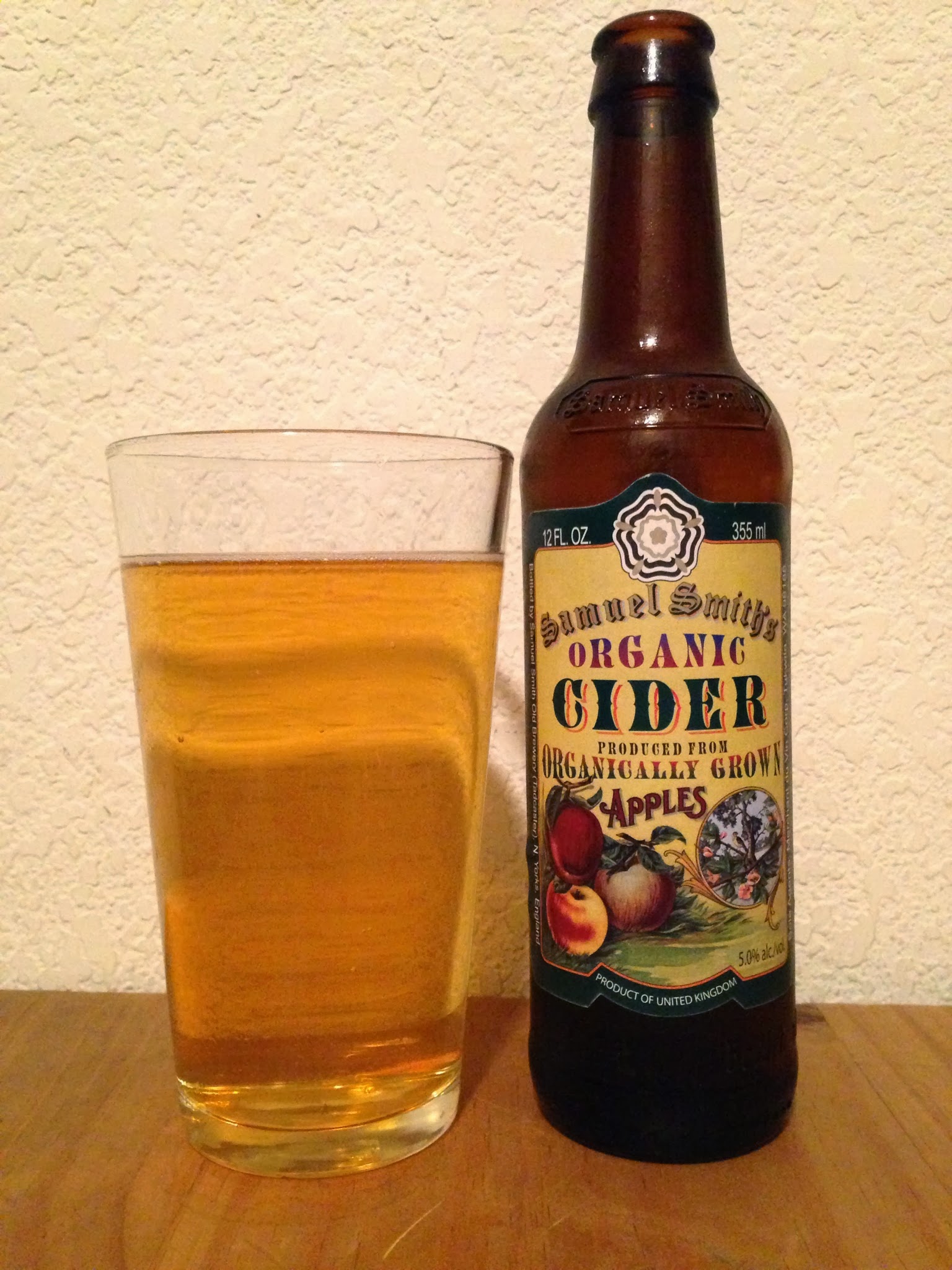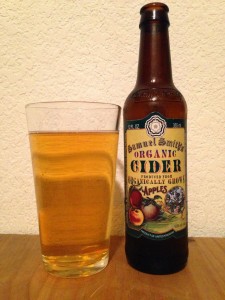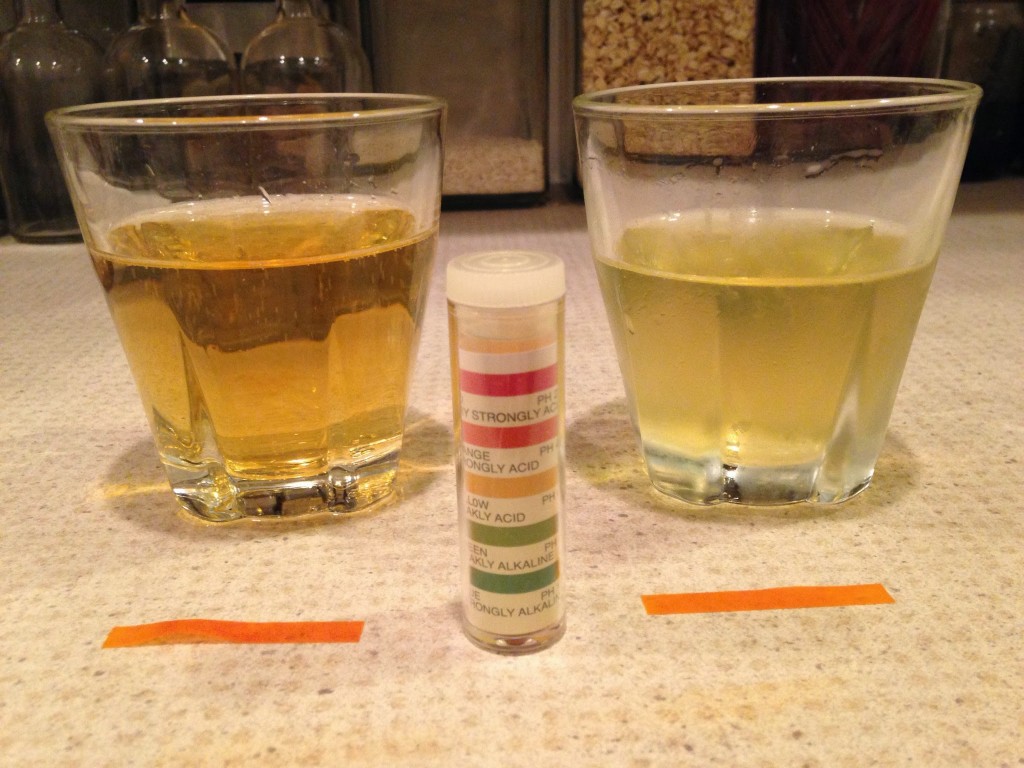Hard Cider Review: Samuel Smith’s Organic Cider

 Samuel Smith’s Organic Cider is an import from the United Kingdom produced by the Samuel Smith Brewery of Yorkshire, which has produced some excellent, traditional English beers and was founded in 1758. It’s a great example of a traditional English cider—relatively dry, with some astringency and bitterness in the mix which offsets the tartness. There are almost certainly some heirloom English cider varieties in here, though the company doesn’t seem to be interested in advertizing that special mix on their website. I did ascertain that they use a wine yeast, which is interesting, but the specific yeast strain remains a mystery to me.
Samuel Smith’s Organic Cider is an import from the United Kingdom produced by the Samuel Smith Brewery of Yorkshire, which has produced some excellent, traditional English beers and was founded in 1758. It’s a great example of a traditional English cider—relatively dry, with some astringency and bitterness in the mix which offsets the tartness. There are almost certainly some heirloom English cider varieties in here, though the company doesn’t seem to be interested in advertizing that special mix on their website. I did ascertain that they use a wine yeast, which is interesting, but the specific yeast strain remains a mystery to me.
With the exception of Northern Neighbor, this cider pours a bit darker than most, though it’s still a light, straw yellow color. It is well-carbonated, and has a crisp, tannic snap to it that is really refreshing and palate-cleansing. At 5% alcohol, it is quite mild. The alcohol content seems surprisingly low to me considering that they are listing organic sugar as one of the ingredients—typical apple juice from what I’ve read and experienced will yield about 7% alcohol with no sugar additions.This suggests far less reliance on the high-sugar table apples that seems to be the case with many American hard ciders and much more on the the heirloom varieties that impart bitterness, astringency, and tannin. I wouldn’t be surprised if the 5% alcohol comes from fermenting all the sugars in the apple juice, then the table sugar is just back-sweetener to get it back up to its 9g-sugar-per-12 oz medium dryness after they crash the yeast out and remove them from solution.
As far as imported English ciders go, this one is definitely my favorite so far, though I have to give a shout out to Strongbow, which started my cider journey in the first place when I stumbled across it in the pubs of London in 1999–I think The Nag’s Head may have been the first place—and to Bulmer’s, which was readily available in Dublin at that time. I remember thinking at the time that cider would likely be some sort of nasty, overly-sweet beverage akin to a sugary cocktail or lethal concoction like Sour Apple Pucker, but being amazed at the dry, heady beverage that it actually was when I tried it.
I’d recommend trying this alongside your favorite American cider to see what differences you can pick out. I tried it alongside the home brewed cider (with a little added honey) that I made last year from some unpasteurized sweet cider and the results were interesting. Here are some observations:
- While the acidity of the Samuel Smith’s and my Cider were virtually identical (around 4 pH strip, with Samuel Smith’s being slightly more acidic), mine was decidedly tart to the taste compared to the Sam Smith’s
- My cider was bone dry, at zero sugars, which is the natural end point for most home cider fermentations. I like that end product, but side by side next to a cider like Sam Smith’s, it becomes obvious that a little bit of back-sweetening can really help balance a cider, and that the tartness of a bone dry cider is far more dominant than the same level of acidity in a slightly sweetened cider. More on this topic when I make cider again this year and share the results and process with you.
- Although I’d added tannin extract to my cider, knowing there were few or know bittersharp or bittersweet apples involved in the substrate—the tannic and bitter aspects of the Sam Smith’s are still far more noticeable than in mine. I obviously have a ways to go as far as the apple blend is concerned when it comes to my own ciders.

is it gluten free?
Yes, all hard ciders are naturally gluten free. The only related beverages I know of that wouldn’t be are beer/apple blends made by breweries (in CO, anyway, breweries can use apple as long as they’re using 51% or more grain for their fermentables, while cideries cannot use any grain whatsoever).